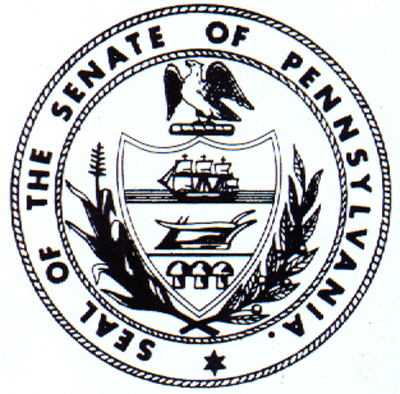|
|
||||||
DEMOCRATIC AMENDMENTS WOULD TIGHTEN LOBBYIST BILL HARRISBURG, April 19, 2005 – Senate Democrats plan to introduce a set of three amendments on the Senate floor to improve Senate Bill 1, the lobbyist disclosure legislation, when it is called up for a vote. One amendment would bring public relations consultants who are functioning as lobbyists under the disclosure and registration requirements. Another would expand the list of unlawful acts in which a lobbyist or principal is prohibited from engaging, and define the penalties for those violations. The third would expand the rules on conflict of interest to prevent a lobbyist from switching clients to represent someone on the opposite side of an issue on which he or she has previously lobbied. "Pennsylvania needs a strong law regulating lobbyists. It is overdue," said Sen. Vince Fumo, D-Philadelphia, the prime sponsor of the amendments. "We want to toughen this bill and close some significant loopholes. All of our amendments are based on measures in other states that have tough lobbying laws." The amendment concerning public relations is intended to address the increasingly common practice of media and PR consultants functioning as lobbyists and attempting to influence public policy through public opinion. Texas, which has a highly regarded lobbying statute, is one jurisdiction that already regulates PR and advertising on legislative matters. The Hill, a Washington D.C. trade paper, said recently that there should be broader criteria for disclosure because these days the "division between what lobbyists do and what public relations consultants do is all too often a distinction without a difference." The amendment would not prohibit public relations consultants from lobbying, but would simply bring them under the lobbying disclosure and registration requirements. "More and more, the lines are becoming blurred between lobbying inside and outside the capitol," Fumo said. "In fact, many firms nowadays attract clients by offering a full range of services that include lobbying as well as public relations, and it is sometimes difficult to determine where one stops and the other begins." Another Democratic amendment would add 12 offenses to the acts prohibited by the statute. Among the things it would be unlawful do to if the amendment is adopted are: instigating the introduction of legislation for the purpose of being hired to lobby for it; asking a state official or state employee to recommend a lobbyist to a potential client; concealing the identity of an active client from a state official or state employee; influencing or attempting to influence a state official’s or state employee’s actions through coercion, bribery or threat of economic sanction; and exercising any economic retaliation, extortion or unlawful retaliation against a state official or employee because of his position, vote, or administrative action. This subsection is modeled after laws on the books in Texas, California, Idaho, Kentucky, Mississippi and West Virginia, all of which are considered by government watchdog groups to have strong lobbying laws. "This amendment simply makes the regulation of lobbying more comprehensive," Fumo said. "It tightens up the bill in a number of small but important ways." The remaining Democratic amendment addresses conflict of interest. It would prevent a lobbyist from switching clients to represent a party whose interests are materially and directly adverse to those of the original client on a particular subject matter, unless the restriction is waived by the original client. "This is a matter of fairness," Fumo said. "If a lobbyist is working on an issue, he or she should not be permitted to switch sides in the middle of the fight." This provision is similar to ones in Washington, Idaho and Texas. Violations of the latter two amendments would be punishable by a fine of up to $2,000 and a five-year ban on lobbying in the state. # # #
|


